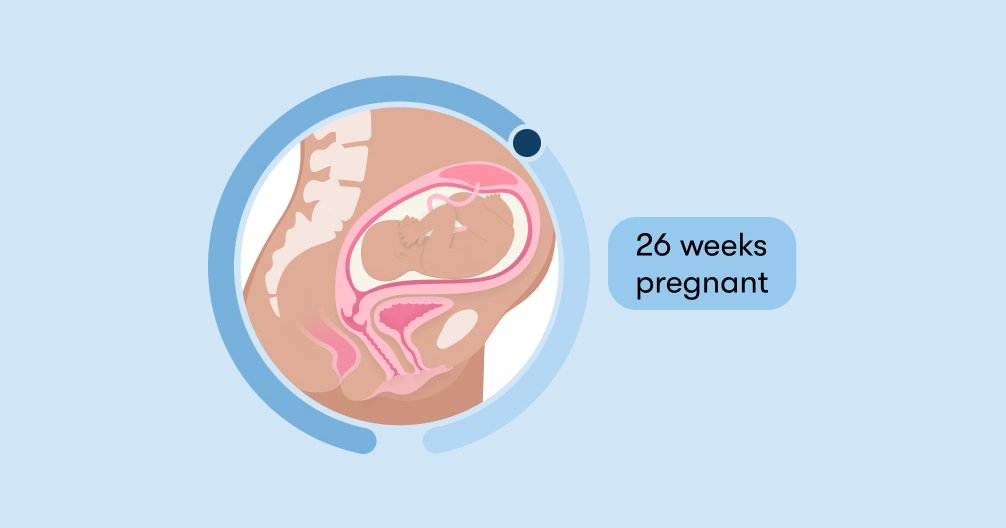During the 26th week of pregnancy, significant changes and developments occur for both the expectant mother and the growing baby.
For the Expectant Mother:

- Physical Changes: By the 26th week, the expectant mother’s abdomen continues to enlarge as the uterus expands to accommodate the growing baby. This may lead to increased discomfort, backaches, and pelvic pressure. Some women may also experience symptoms such as leg cramps, constipation, or hemorrhoids due to the pressure on surrounding organs and increased blood volume.
- Emotional Changes: Pregnancy hormones can contribute to mood swings, anxiety, or heightened emotions during this time. The expectant mother may also experience a range of emotions related to preparing for childbirth and parenthood. It’s essential for her to practice self-care, seek support from her partner, family, or healthcare provider, and engage in stress-reducing activities.
- Prenatal Care: Regular prenatal check-ups and appointments are crucial during the 26th week of pregnancy. The healthcare provider will monitor the mother’s health, assess the baby’s growth and development, and discuss any concerns or questions the expectant mother may have. The provider may also perform routine tests, such as blood pressure monitoring and urine analysis, to detect any potential complications.
For the Developing Baby:

- Growth and Development: At 26 weeks, the baby continues to grow rapidly, and most of the major organ systems are now functioning. The baby’s skin becomes less translucent and starts to develop a more opaque appearance. Hair and nails continue to grow, and the baby’s body becomes more proportionate.
- Movement: The baby’s movements are becoming more coordinated and purposeful. The mother may feel distinct kicks, punches, or rolls as the baby explores its surroundings and exercises its muscles. These movements are essential for neuromuscular development and coordination.
- Sensory Development: The baby’s senses, including sight, hearing, taste, and touch, continue to develop. The baby can hear sounds from the outside world, including the mother’s voice and heartbeat, and may respond to external stimuli by moving or changing position.
- Brain Development: The baby’s brain continues to mature rapidly, with neurons forming new connections and neural pathways developing. This period of brain development lays the foundation for future cognitive, emotional, and behavioral functions.
- Respiratory Development: Towards the end of the 26th week, the baby’s lungs continue to mature, and the production of surfactant—a substance that helps the air sacs in the lungs stay open—increases. This is a crucial step in preparing the baby’s respiratory system for breathing outside the womb.
Overall, the 26th week of pregnancy represents a period of continued growth and development for both the expectant mother and the baby. It’s essential for the mother to prioritize her health and well-being, attend regular prenatal appointments, and follow any recommendations or guidelines provided by her healthcare provider.
Visited 18 times, 1 visit(s) today

